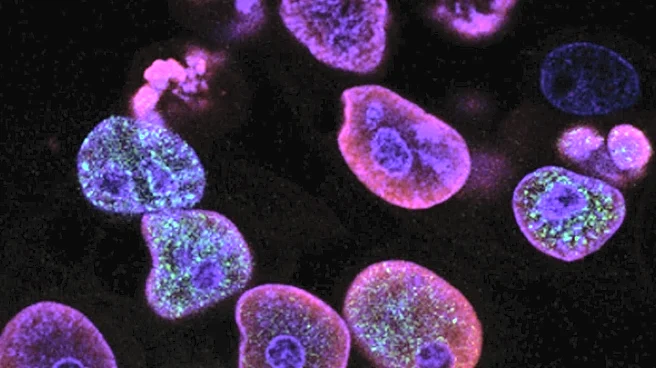What's Happening?
The 3rd Cell Therapy for Autoimmune Disease Summit is set to take place in Philadelphia this December, bringing together over 130 scientific pioneers to discuss the future of cell therapy innovation. The summit will focus on translating cell therapy potential into reality for autoimmune diseases, with discussions on antibody and cell targeting strategies, treatment durability approaches using biomarkers, and global regulatory pathways to accelerate approvals. Experts from leading companies such as Cabaletta Bio, Kyverna Therapeutics, and Novartis will share insights on preclinical and clinical data, regulatory experiences, and patient recruitment strategies.
Why It's Important?
The summit is crucial as it addresses the growing interest in cell therapies for autoimmune diseases, which have shown potential in inducing durable remission in conditions like lupus. By focusing on innovative strategies and regulatory pathways, the event aims to propel lead candidates to clinical and commercial success. This could significantly impact the healthcare industry by providing new treatment options for chronic autoimmune conditions, potentially improving patient outcomes and reducing healthcare costs associated with long-term management of these diseases.
What's Next?
Following the summit, stakeholders in the cell therapy field are expected to advance their research and development efforts, leveraging insights gained from the event. Companies may pursue accelerated regulatory approvals and streamline cross-border clinical trials to bring new therapies to market. The collaboration and knowledge sharing at the summit could lead to breakthroughs in treatment strategies and patient engagement, ultimately transforming the landscape of autoimmune disease management.
Beyond the Headlines
The summit also highlights ethical and regulatory challenges in the field of cell therapy, such as ensuring patient safety and managing off-target effects. As the industry moves towards commercialization, there will be increased scrutiny on the long-term efficacy and safety of these therapies. Additionally, the event underscores the importance of balancing innovation with patient-centric approaches, ensuring that new treatments are accessible and beneficial to those in need.









